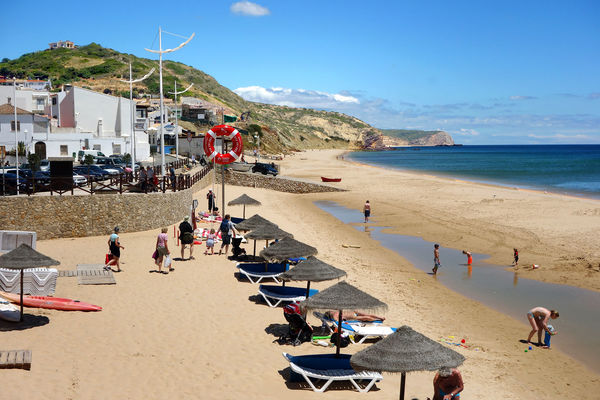Job in Portugal right career opportunities can be difficult, especially if you are thinking of moving abroad, as many job opportunities require skills other than specific language skills.
The job in Portugal market is becoming increasingly welcoming to expats. However, those intending to travel and settle in Portugal need not worry too much as there are many employment opportunities for foreigners in Portugal.
Type of jobs available in Portugal:
Before you decide to go to Portugal to look for work, contact the EURES services in your country. can provide you with up-to-date information about the job market in Portugal. If you are already in Portugal, you can search for jobs in the following areas on Portugal:
- Data and transmission technologies (especially IT engineers with very specific specialist profiles)
- Metallurgy and metallurgical industry (skilled workers)
- healthcare workers (doctors of various specialties)
- tourism, hotel and restaurant industries (cooks, waiters and bar staff)
- Agriculture (seasonal work, especially fruit and vegetable harvesting)
- Creation (plumbers, electricians and other skilled workers)
- Call/Contact Center (Business Support Center and Shared Service Center*, covering commercial, administrative, human resources, accounting and management control responsibilities). This area requires specialists with very specific language skills.
Work in Portugal:
If you plan to find a job in Portugal, for those looking for remote work opportunities. A student interested in a quick summer job, or a permanent resident starting a career in Portugal If you are interested, you may know something about the job market.
Important facts to know about Portugal and the industries open to foreigners. This way, you will be able to make the most informed decisions about future employment opportunities in the country.
Access to the Portuguese labor market is different for English speakers and non-English speakers. Unemployment in Portugal has fallen significantly in recent years, from around 12.4% in 2016 to 5.6% in June 2020.
Youth unemployment remains significantly higher, at 25%.6%. Portugal’s main economic sectors include tourism, textiles and footwear, hospitality, automotive, construction, electronics and transport. The country does not attract as many foreign workers as major European economies.
But the number of working-age migrants has increased in recent years and now accounts for about 3.2% of Portugal’s active workforce. In general, Portuguese have better employment opportunities in specialized fields such as architects, accountants, engineers, doctors and lawyers.
Biggest companies in Portugal:
- EDP
- Jeronimo Martins
- Galp Energeia
- NOS (telecommunications)
- REN
- Banco Commercial Portuguese
- Corticeira Amorim
- Altria
- Access to the Portuguese job market is different for English speakers and Portuguese
Where are the job offers in Portugal ?
You can easily find English-speaking jobs in the IT industry, tourism and hospitality, as well as international companies, customer service centers and language schools.
Since many of these positions require high English skills, being a native speaker is already a significant advantage. Being bilingual or, better yet, trilingual has other advantages. Portugal is home to major international companies including Google, Amazon and Uber.

In all these jobs in Portugal, knowledge of English and other European languages will be very beneficial, as all these jobs emphasize technical and soft skills, including verbal and communication skills. Most of these companies also require a bachelor’s degree.
Most in-demand jobs in Portugal:
- Website developer (backend and frontend)
- sellers
- Bartenders
- Bartenders
- Customer support agents (not only in call centers but also in international companies with offices in Portugal)
- Team supervisor
- online gaming support
- real estate agents
- interpreters and translators
- accountants
- project Manager
Job salaries:
The Portuguese government reviews the minimum wage every year. In 2020 it is 635 euros per month with 14 monthly installments or 740.80 euros with 12 monthly installments. This corresponds to an hourly rate of approximately €4.64.
The median salary job in Portugal. 1,188.06 euros per month in mid-2019. This makes it one of the worst paid countries in the EU.
Average salary in Portugal:
According to Trading Economics, the average salary in Portugal was 1,548.29 euros in the second half of 2023. This is an increase compared to €1,544.61 in the previous period. This makes Portugal one of the worst paid countries in the EU.
The highest percentage of workers receiving the minimum wage in Portugal were in the manufacturing, furniture, food, beverage and tobacco sectors. The lowest values concern the energy, financial services and insurance sectors; They generally earn more than the average Portuguese income.
How to Apply for a Job in Portugal:
The best way to find work in Portugal as a foreigner is to adapt to the Portuguese job market: respect the style of a person’s CV and know how to behave at interviews and training events.
CV Tips:
The most like CV is split into three sections. Your personal details show at the top, followed by your most recent work expertise and your most recent degrees and qualifications. However, you can choose the structure that best suits your professional background and highlights your specific skills.
Remember to follow the tips below. short CVs are welcome – one page should be enough to demonstrate your suitability for the role. However, other positions may require you to deal with some technical details.
In this case, your CV can be two pages long, but never more than three. Start with your personal information. This includes your name, nationality, date of birth and place of residence. You do not have to provide your marital status or your full address.

Attaching a photo is also up to you: some recruiters recommend adding one as it makes your resume more user-friendly, but it’s a matter of choice. Add your contact details and links to professional social networks such as Xing or others.
Track your work experience starting with the most recent. Make sure you list job responsibilities and only include relevant job titles. The third section should contain information about your education and qualifications, again in reverse chronological order.
Optional information: If desired, you can specify your hard skills and soft skills. As for hobbies, you can include them if they are relevant, but again, they should be kept to a minimum.
If you do not talk Portuguese, you must submit your CV in English or further speech required for the position.
Cover Letter:
Cover letters are not absolutely necessary, but of course this depends on the job offer and the sector of activity. More technical jobs may not require a cover letter, while positions that require communication may require one.
Search for work online on websites:
The most common option when looking for work is contacting construction sites. In Portugal the best and most used jobs are:
- Net Emperor
- Indeed
- Sapa Emperors
- It Jobs
These websites will also give you a clearer picture of job descriptions and specifications. You can narrow your search based on your skills and apply for the most suitable positions.
Contact an employment agency:
Employment agencies, also known as recruitment agencies, carry out company selection processes throughout Portugal. They connect job seekers with people looking for the ideal candidate.
Their experience increases the likelihood of finding the perfect candidate, so you can trust them with the hard work and prepare for a new life.
References and Qualifications:
References are generally not required, but as always, pay close attention to the specifics of the application as some recruiters may ask for them. If you don’t know what you want, you should bring a letter or two of recommendation.
Include the details of a trusted person here to make sure you are safe. In principle, you do not have to prove your qualifications, at least not on your first application. As you move on to other stages of the recruitment process.
You may be asked to provide a diploma or other document confirming your qualifications.
Interview Tips:
The Portuguese offer a lot of value. If in doubt, you should dress more formally for the interview. From this point of view, it is important to pay attention to the culture of the company.
Do you approach recruiters formally or informally? If you’re applying to a startup, you can expect the dress code to be more casual. If you are being interviewed in person, use a firm handshake when introducing yourself. The practice of greeting each other with two kisses on the cheek is not appropriate in a professional context.
Networking Tips:
When it comes to networking, this will prove to be a powerful tool when looking for work in the country. Once you’re settled in here, make sure you meet your colleagues and potential employers by attending events relevant to your industry.
You can always attend an International Nations event to meet expats who are already working in the country and can help you find your community both professionally and personally. International has communities in Porto, Lisbon and Cascais.
Why work remotely in Portugal?
- An alternative to finding work in Portugal is to live in Portugal and work remotely for a foreign company.
- It may be easier to find work in your home country and you can enjoy the Portuguese lifestyle for much less money.
In addition, since the pandemic, Portugal has been trying to put tourism on hold and invest in remote work initiatives. - Thousands of nomads took advantage of the pandemic and spent the quarantine in Portugal. The country is safe, has a high-quality healthcare system, and was one of the first countries to publicly enforce the telecommuting lifestyle.
- There are more and more accommodation providers, cowering spaces and non-profit organizations working in this direction.
- Madeira, Algarve and Braga are among the most popular regions in Portugal to live and work from home. And when you live in Portugal, working from home becomes a pleasure.
Top places to work remotely in Portugal:
Algarve coast:
At the top of our list is the sunny Algarve. The Algarve, located in southern Portugal, is home to the highest proportion of foreigners in the entire country. Around 20% of the Algarve’s population are expatriates, compared to the national average of 5%.
Nomads love living in Portugal The region also has a strong tourism industry. It’s much more common to meet people who speak English or even assistants who don’t speak a word of Portuguese.

The Algarve is the warmest region in Portugal with beautiful beaches and a warm climate. Since this region is pleasant to live but not pleasant to work, remote work is ideal! You can work remotely and live in paradise at the same time.
It ranks fourth in the world after Miami and Dubai. You will never feel out of place because digital nomadism is widespread in this region and people are always looking for new friends and contacts.
Madeira Island:
In 2023, Madeira has decided to focus on a new initiative: a digital nomad village, fully open to the public in different parts of the island. Projects like the Digital Nomad Village in Madeira have encouraged more single nomads to feel at home and fall in love with their new lives.
For more information, visit the official website of Digital Nomad Village Madeira and be inspired by the initiatives! The center of this community is in the charming village of Ponta do Sol, full of jobs and free WiFi.
The island of Madeira is also ideal for living if you want to be in touch with nature and enjoy a mild climate all year round. It is close to the continent and has a large expat community, particularly Brits.
Being an island, the peace, privacy and tranquility you will find here is unparalleled. If you’ve always dreamed of living on an island while making a living, this is your sign.
Alentejan villages:
Have you ever thought about living in the country? Portugal has some of the most beautiful landscapes in Europe. The Alentejan region, located between Lisbon and the Algarve, is one of the warmest in the country.
However, it is one of the most sparsely populated regions in Portugal with many villages and large plantations.
In this region there is a much lower proportion of foreigners, around 4-7%.
However, the Portuguese are friendly and hospitable, so you will feel comfortable here. In this beautiful region of Portugal you can enjoy a quiet day in moderate temperatures and work remotely.
Also read about, Salary in Portugal increased – 820 EUROS>>
Central Portugal:
The central regions of Portugal have also recently invested in a culture of digital nomadism. More and more local businesses that previously worked in tourism are changing their strategies to accommodate people working remotely.
You can also find many affordable restaurants and cafes in central Portugal, as the locals take their gastronomy seriously.
If you have any questions or want to share your experience, please let us know in the comments below.







